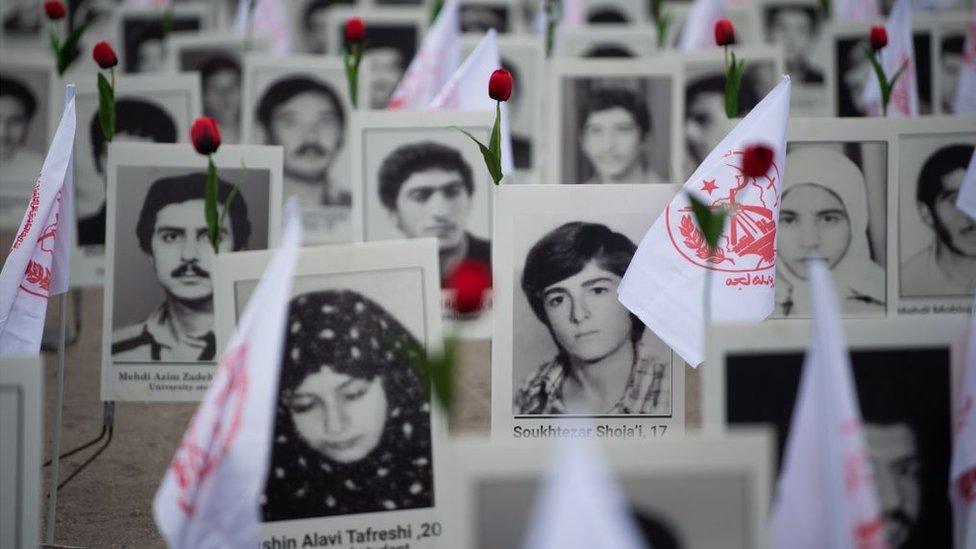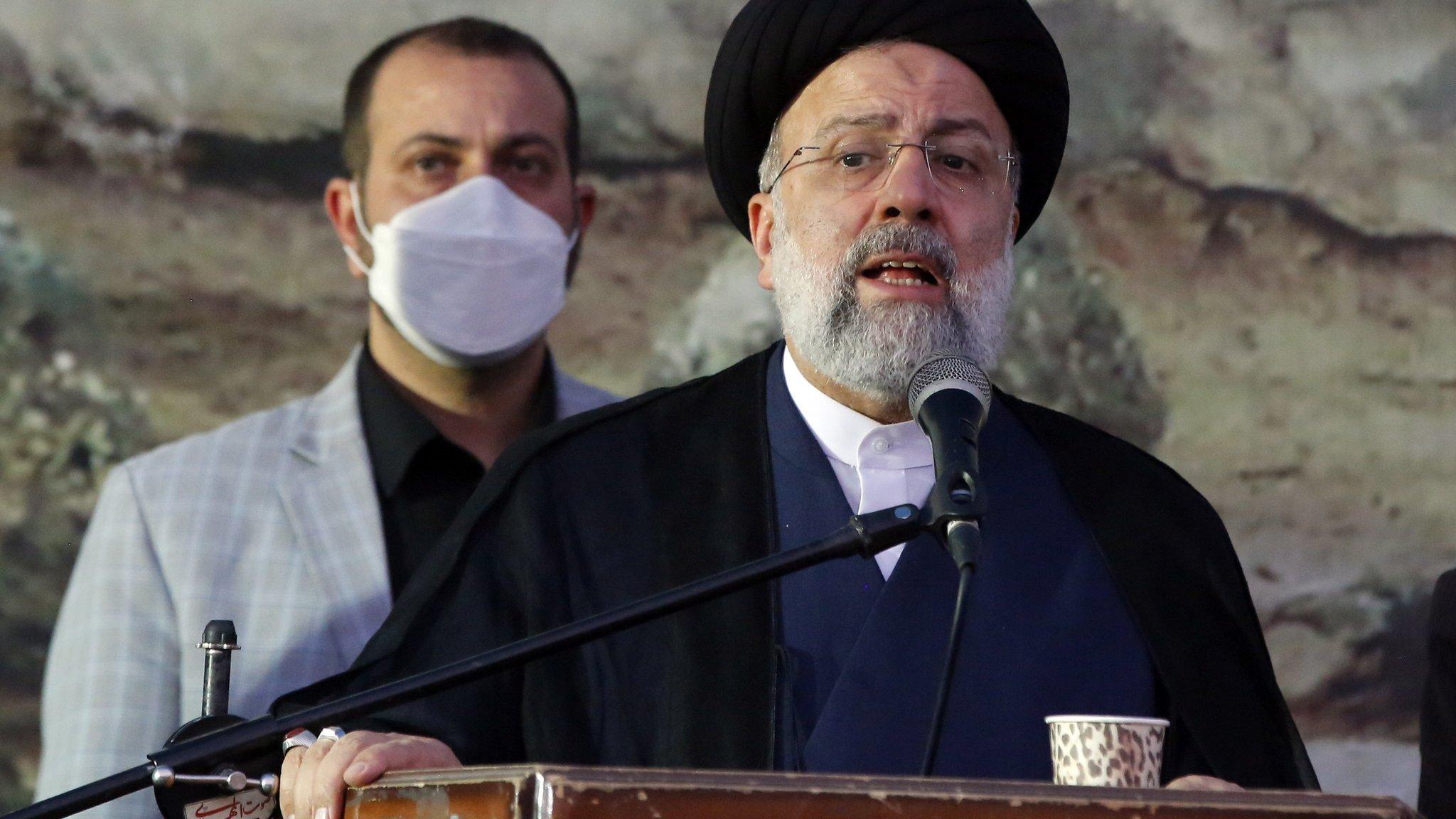Sweden charges man over 1988 Iran prison massacre
- Published

Iranian opposition activists commemorated execution victims in Paris in 2019
Prosecutors in Sweden have charged an Iranian with war crimes over the mass execution of prisoners in 1988.
The suspect was not named but has been widely identified as Hamid Nouri, 60.
In 1988, Iran was at war with Iraq. Iran's supreme leader ordered the mass execution of prisoners linked to an armed opposition group allied to Iraq.
The suspect was working in a prison near the Iranian capital Tehran, prosecutors say. His lawyer told news agencies he denied the charges.
Human rights groups have long campaigned for justice over the executions across Iran, in which an estimated 5,000 people were killed.
Prosecutors were able to invoke the principle of "universal jurisdiction" for serious crimes to bring the case.
The killings have come under renewed focus following Ebrahim Raisi's election as president of Iran last month.
Mr Raisi, who will take office in August, was one of four judges who sat on secret tribunals set up in 1988 to "re-try" thousands of prisoners for their political activities.
He has repeatedly denied his role in the death sentences, but has also said they were justified because of a fatwa, or religious ruling, by late supreme leader Ayatollah Khomeini.
Mr Nouri was detained after his arrival in Stockholm two years ago, according to Swedish media.
He is accused of having taken part in the mass executions of "a large number" of inmates who sympathised with the leftist opposition group Mujahedin-e Khalq (MEK), also known as the People's Mujahedin Organisation of Iran, in July and August 1988.
He is also suspected of subjecting the prisoners to torture and inhumane treatment.
In a statement released on Tuesday, Sweden's Prosecution Authority said the charges related to the suspect's time as assistant to the deputy prosecutor at the Gohardasht prison in Karaj.
The MEK fought alongside the Iraqi army during the war with Iran, between 1980 and 1988. As a result, most of the executions are classed as war crimes.
The war ended on 20 August 1988, but the executions continued.
Mr Nouri is charged with murder in connection with those deaths, rather than crimes against humanity, which did not become offences under Swedish law until 2014.
The trial is expected to begin on 10 August and continue until April next year.
Iraj Mesdaghi, who is a witness in the trial, tweeted that the indictment was a "great victory".
Related topics
- Published20 May 2024
